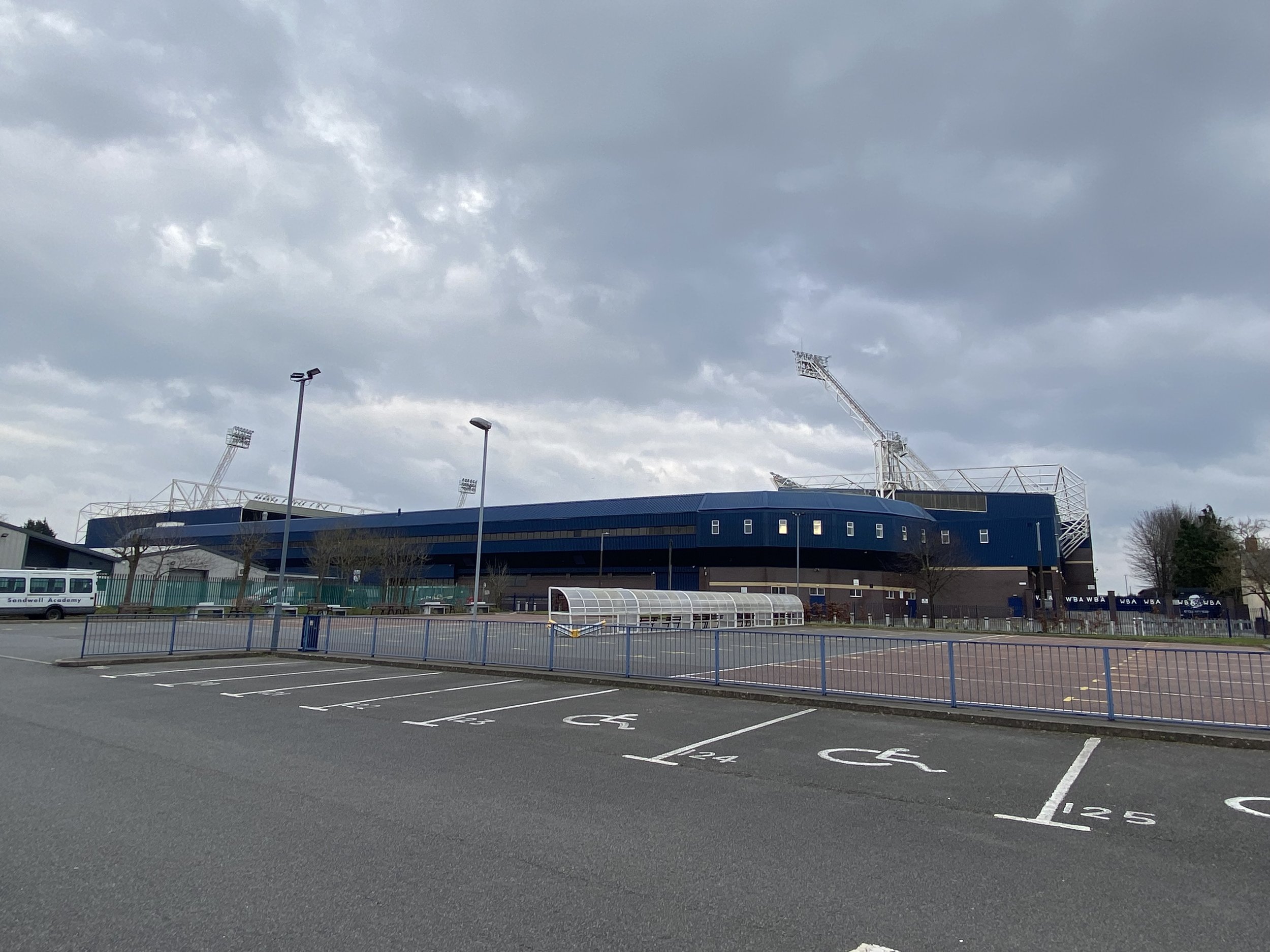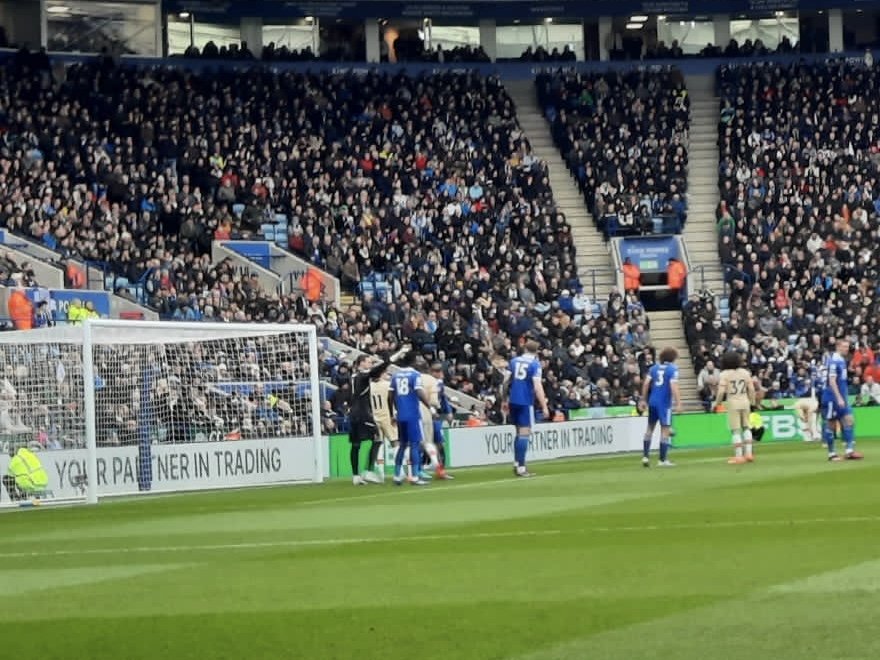Out of his depth and now sunk: why Danny Ward is a sub again
Ashes to ashes, dust to dust, Brentford to Brentford. Danny Ward’s spell as Leicester’s number one went up in a puff of smoke before the international break. TFW investigates how we ever got to this point.
Ward’s Leicester City career lasted 223 days. 7 months, 1 week, 4 days. To put it another way, it lasted 5352 hours too long.
Occasionally, there are players and managers so obviously out of their depth that there’s an argument you should cut your losses and bin them off straight away. Think Christian Gross waving his tube ticket at his introductory press conference, Ali Dia’s immortal Premier League career, everything Nathan Jones did as Southampton manager.
Goalkeepers are the position where weakness is most jarring. You basically can’t function as a real team if the 'keeper can’t hack it. Jitters spread out from the back and infect the players in front, you have no margin for error, you’re constantly up against it.
Ranked by post-shot expected goals (in English: how likely a goalkeeper is to save a shot), Ward is the fourth worst 'keeper in the league. The only players behind him, in a rather damning analysis of Irish football, are Illan Meslier, Mark Travers, and Gavin Bazunu.
Those players are 23, 23, and 21. Ward is 29, and has played fewer league games in his career than both Meslier and Bazunu, while Travers was replaced months ago. Going into this season, he had played made one league appearance in six years. For Wales’s first World Cup in a generation, he was overlooked in favour of noted waving enthusiast and part-time shot-stopper, Wayne Hennessey.
The question with his spell as Leicester’s number one is not about why he was dropped last weekend; it’s how he was ever there to begin with.
The opportunity he deserved
Successful football teams do not, generally, hand out starting positions like participation trophies. ‘You’ve shown up for work on time, have the most important job in the team’ is not widely considered a good team-building strategy. Unless you work for Leicester City, in which case this is how you build the foundations of your side.
“He's been a long-time number two here, and a very loyal number two (…) I felt (being number one) was the opportunity he deserved, because of the situation we were in at the club. The club paid a lot of money for Danny.” - Brendan Rodgers
If we were to look for the neatest possible summary of why Leicester are in the mess we’re currently in, perhaps this would be it. Decisions based on personal relationships and longevity rather than legitimate analysis, the manager routinely contradicting himself, and, of course, a lack of investment in the team.
Ward cost £12.5 million from Liverpool in 2018. While that was a lot for a reserve goalkeeper at the time, Leicester have signed SIX centre backs for more in that time period: Wesley Fofana, Harry Souttar, and Wout Faes, along with Filip Benkovic, Caglar Soyuncu, and, of course, Jannik Vestergaard. It might be churlish to point out the fact that vast expense doesn’t seem to have helped any of them get a game, but we’re going to do it anyway.
Then there’s the fact that Ward didn’t earn the job in any way. It’s very rare for a goalkeeper to accept the life of a career backup and then migrate back to a first team role. In a sense, accepting the backup job in the first place betrays such an absence of ambition that it should disqualify you from ever being a starter at that level again.
It has occasionally happened, like with Emi Martinez at Arsenal, but Martinez got his break when Bernd Leno was injured, and then earned a starting job through his performances for the rest of the season. He then left for a permanent #1 gig when Arsenal wouldn’t commit to him.
Ward, again, had played one league game in six years, and that was last April. He had some decent outings in the early rounds of cup competitions, but as soon as things got serious he was out of there. Kasper Schmeichel came in from the quarter-final stage of the FA Cup win, the quarter-final of the Carabao Cup run to the semis, for the loss to Liverpool last season.
At which point you can’t really blame Ward himself. He was probably thrilled with the life of a number two. Nobody, least of all him, had shown any indication that they thought he should be first choice. Apart from a few rumblings after the Euros, there was no sign he was going to up sticks in search of games. He was happy to play four or five times a year and sit on the bench.
And then, suddenly, he was thrown into the fire.
I got 99 problems and money is one
Kasper Schmeichel was 35 years old last season, and clearly on the decline. If we cast our minds back 12 months, he was identified as a main culprit of our ludicrous set piece record and many people were leaning towards a change.
There were some signs the club felt the same way. Ward made his Premier League debut at Watford towards the end of last season, a move that may have implied some sort of succession planning but was ultimately just a bit weird; it mainly served to break Schmeichel’s consecutive games streak and, presumably, to annoy one of the few leaders in the dressing room.
To those of us that follow the NFL, it had echoes of the New York Giants benching Eli Manning to break his consecutive start streak. One of those decisions that seems to be about sending a message, but where you write the message on a stick of dynamite so that it blows up in your own face as soon as you post it. In New York, it cost everyone involved their jobs. At Leicester, we rebuilt the post box out of leftover McDonald’s wrappers and pretended everything was fine.
There’s no doubt that a decision needed to be made about Schmeichel. The difficult, but proactive, one would have been to cut ties in May, allow him to talk to other clubs, have a big send-off on the final day, and find a replacement in the summer. Leicester chose the reactive course: do absolutely nothing until a week before the season and then bundle him out of the door at the last minute.
We can probably see two reasons behind this move. First, there’s the whole ‘oops we don’t have any money’ thing, and second, the fact there was a big empty chair where the head of recruitment should have been.
I have some sympathy with the financial problems, albeit less now than I did in the summer. If we’re to trust the reporting, Leicester refused to accept cut-price deals for squad players that would have freed up some cash. Other players, notably tall, talkative Danish centre halves, turned down the moves we did agree.
You can’t help the latter, but you certainly can help the former. Ekeing out some funds for a new goalkeeper was the most pressing need in the squad for the entire summer if they knew Schmeichel was likely to leave. Leicester chose to do nothing. Sign no one, sell no one.
That decision paralysis was surely a result of the lack of a recruitment chief. It’s hard to imagine a summer of nothingness with someone in-situ, if only because that person has to justify their salary. Whether the absence at the top contributed to a lack of strategy or simply left them woefully understaffed is difficult to know - probably it was a combination of both.
Either way, these are not insurmountable problems. For all Rodgers’ complaining in the summer, he wasn’t wrong about how easy it is to get left behind. All three promoted clubs signed new goalkeepers this season. Forest, as is their wont, have signed three, and acted immediately when Dean Henderson went down injured in January. It wouldn’t have taken much: Bernd Leno, for instance, cost Fulham only £8m this summer, and he currently ranks third in the post-xG shot data. We aren’t talking about bankrupting the club.
Even once they had decided on the radical, do-nothing approach favoured by office workers around the globe, that wasn’t the end of it. Danny Ward was not the only goalkeeper at the club.
A tale of two Daniels
If we continue to cast our minds back to the heady summer days of July, as the goalkeeper crisis gathered steam, we might remember that Ward himself played no part in Leicester’s pre-season campaign. He was injured - his only appearance before the opening day came in an alleged friendly that took place behind closed doors a few days prior to the big kick off.
Schmeichel and Daniel Iversen split duties across the friendly programme. Iversen got the majority of first team work, and both featured in the big finale friendly at home to Sevilla. When Schmeichel left for Nice a few days before the season opener, we had two options: a) Ward: 29, injured and with one game in six years, or b) Iversen: 25, not injured, a full pre-season campaign, Preston’s player of the season and a man with more than 100 games in six years.
Now, we don’t know if Iversen is going to be good. But that’s not really the point. If you had to back one of those two players to be good, you’d pick Iversen every time. He’s on a trajectory that looks like a decent goalkeeper, even if it ultimately isn’t at Premier League level. He’s gone out on loan, played, and played well. He’s worked his way through the Danish youth teams and was called into the full squad in the summer.
Rodgers has a reputation as a positive manager who’s willing to take risks. The reality is that he’s often exceedingly cautious, whether that’s sacrificing possession and piling on defenders to protect leads, reactive substitutions that are always the same, or casting players aside if he doesn’t trust them to play the way he wants. Picking Ward, a player he has ‘known for a very long time’, was an extension of that.
Ward was the easy choice. Iversen is apparently not as good on the ball as Ward, so he could play the latter without having to think about tweaking the style. Ward meant avoiding a difficult conversation, meant not having to trust someone he didn’t really know yet.
Yet it was clear almost from the off that it was a mistake. The goals were raining down, Leicester couldn’t win, the pressure was already building. But it was still the height of summer. The transfer window was still open, there was still time to change.
How to hold a fire breathing contest
We all know the stats by now. Leicester have the third worst defensive record in the league. The first clean sheet of the season didn’t come until October. There’s been none at all since the World Cup.
It isn’t all on Ward. But he is the source of the torrent of goals. The stats are bad, and even the stats only tell part of the story. He failed the eye test from the very beginning. He’s a tall man who plays small, has no presence and exudes no confidence. Even the way he dives is odd, like a dad playing with his kids in the garden. He doesn’t resemble a Premier League goalkeeper, and never has.
It’s been obvious from the start that the rest of the team knows this. In the second game of the season, he drove Wesley Fofana to walk out of the club in disgust after a smorgasbord of mistakes that included booting the ball off the Frenchman for a corner and handing Arsenal a goal seconds after we dragged ourselves back into the game.
We’ve seen example after example of his defence having no confidence in him. He’s rowed with Wilfred Ndidi, Wout Faes ignored his shout to score a ludicrous own goal at Anfield, Timothy Castagne dribbled past him and fired just wide of his own goal against Spurs in an effort to avoid giving Ward the ball.
Then there’s the game-to-game tactics on show. Despite it apparently earning him the job in the first place, Ward has no real ability to play out from the back, nor has he got any speed or agility off his line. That’s left Leicester playing a high line with slow centre backs, a slow goalkeeper, and often no pressure on the ball in midfield. The tactical equivalent of packing your house with TNT then holding a fire breathing contest in your living room.
A proactive manager would have acted to stem the flow. Calls for Iversen began almost immediately and have scarcely ceased. Fulham dropped Marek Rodak for Leno after two games. Bournemouth replaced Travers with Neto after five. It took Leicester 26. Along with his caution, Rodgers is stubborn too. How many points has that stubbornness cost? Even if it were only two or three, that might be the difference between triumph (of sorts) and disaster.
Playing all the hits
Ultimately, it took until March for the axe to fall. And it only fell as an act of desperation. Only with rumours swirling that he was a loss away from the sack did Rodgers make the change. Football almost always ends up as a meritocracy. With his back against the wall in the last chance saloon, Rodgers showed us what he really thinks.
Although Rodgers should take most of the heat as the man who picks the team, there’s a lot more blame to go around. In this episode, we got to play all the hits: packing the squad with detritus that we couldn’t shift, self-harming by refusing to sell anyone below our asking price, going through a whole transfer window without a head of recruitment, arrogantly believing we could finish mid-table regardless, failing to react as the season spiralled out of control.
Despite everything, Ward himself probably doesn’t deserve much of that blame. He’s not good enough to be a Premier League goalkeeper, but that’s fine. There aren’t many people in the world who are. He’s a fantastic number two, content to be a good soldier and get a couple of run outs a season.
Just please don’t ever start him again.





